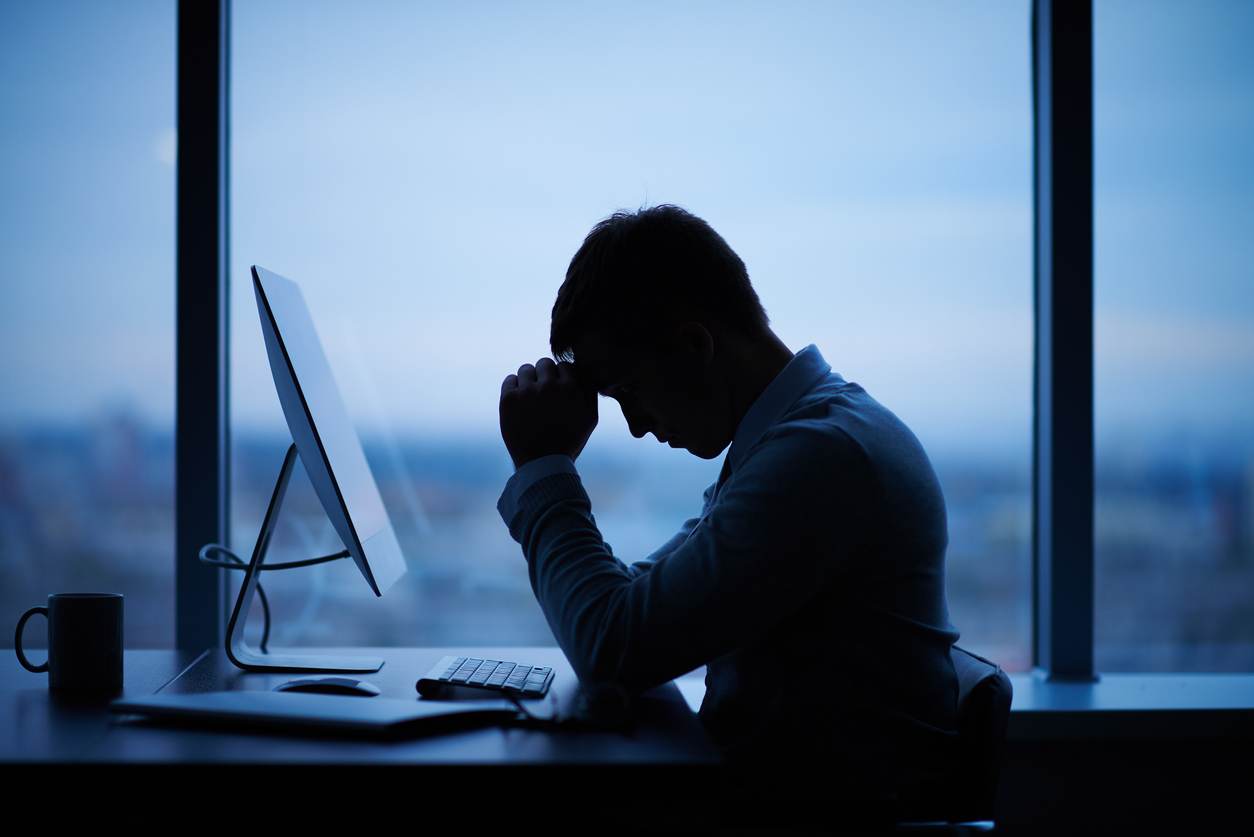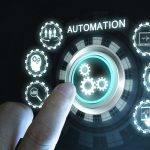The impact of the coronavirus crisis on most businesses and their leadership has been profound. Unsurprisingly, CEOs have been focused on solving the ‘now’ problems. It has been a huge sprint, but you can’t sprint forever.
Anne Marie Kilkenny, Partner at Oliver Wight EAME, offers CEO Today her insights on how leaders can prevent burnout of both their management team and themselves.
In a recent global survey by Oliver Wight, only 9% of respondents said that COVID-19 had little or no impact on their business. Most organisations have found the last 6 months incredibly challenging – whichever direction their business is heading. As this month marks for many the welcome return to the office, no one will deny that the intensity of 2020 has had, and will continue to have, lasting effects on us all. Despite many business challenges that we are seeing as a result of COVID, such as supply chain disruption and delays to new product launches, our view is that the most detrimental issue facing major businesses is CEO burnout.
CEOs are usually expected to be exempt from care, and the effects and cases of CEO burnout is an area where research is very limited.
In a 2018 article, Science Direct reports that "Despite the possibility of burnout resulting from dynamics in firms' upper echelons, little if any work has focused on Chief Executive Officers' (CEOs') burnout and firm performance". There are also few case studies as CEOs rarely go public.
For instance, the resignation of Jeffrey Kindler, 2010 Pfizer CEO, who stated he needed to "recharge his batteries" following the Wyeth acquisition, was met with a pretty harsh media response: he "was a surprising choice in the first place"; he "quit without achieving his goals". So even today as the stigma around mental health is slowly being chipped away, it’s hardly surprising that very senior business leaders are reluctant to share the significant challenges they are facing as human beings.
Most organisations have found the last 6 months incredibly challenging – whichever direction their business is heading.
Most of the CEOs I know are smart, resilient, and able to handle ambiguity with multiple demands under huge pressure. Today, however, as a result of the immediate and continued impact of the coronavirus crisis, we are seeing CEOs faced with different challenges.
There is the challenge of dealing with a crisis remotely. Following other global shocks, such as 9/11 and the financial crash, people worked literally shoulder to shoulder. It was brutal but there was still camaraderie and banter face to face. In today’s world it is even more lonely at the top for CEOs who feel the weight of responsibility for their employees and the expectations of shareholders to predict the unpredictable. This crisis is pervasive. For many leaders, COVID-19 stress goes beyond the job. CEOs have to worry about not only themselves, but their family members. The work stress is impacting family life much more directly than the ‘normal’ stress of long days and frequent travel. If you have had to make tough decisions in your own kitchen that may adversely affect hundreds or thousands of people, where is your safe space now?
Dr Helena Boschi, a psychologist specialising in applied neuroscience at work, recently posted: "The blurring of boundaries between home and work is taking its toll and the digital world is relentless and exhausting. As we head further into the unknown, energy and motivation levels are starting to wane".
Many senior leaders thrive on pressure, but that needs to be counterbalanced with a sense of achievement and progress. Working at increased intensity with a sense of spinning the wheels or even relentless loss can lead to negative stress and burnout. The symptoms of this include "tired –wired" syndrome (low energy during the day and an inability to switch off at night), resulting in many leaders finding themselves unable to make small decisions.
Many senior leaders thrive on pressure, but that needs to be counterbalanced with a sense of achievement and progress.
With two clients that I coach we introduced the "7 - 7" rule: no emailing and all work paraphernalia is out of sight between 7 pm and 7 am so the family feels they are present. This has had the effect of switching off the reptilian brain, reducing adrenal fatigue in turn. There has been an additional benefit: team members reported they had felt compelled to be monitoring their emails at all hours to respond to the boss, but this change has reduced pressure on them too.
We are also setting programmes for our clients that will reduce stress and anxiety by helping them direct the organisation with clarity and confidence, enabling them to identify the real crisis or issues and to prioritise and focus on the areas that that will make a difference - the important and not only the urgent. Ultimately this will enable our clients to lead and motivate, which sounds easy but in the current climate is increasingly demanding.
From sprint mode to marathon mode
As we move businesses from sprint to marathon mode, CEOs need to be at the top of their game and regain their energy. CEOs need to recognise that business recovery in a long COVID or a post-COVID world will require a different approach, a different skill set. You may be exercising different or new muscles, so they will tire more easily.
"Long COVID" is a term that can be applied in business as well as to people - the effects will be long-lasting and at this point are still very difficult to predict in terms of timing and impact. We are working with clients across a wide range of industry sectors, helping some with recovery, some with massive growth. In all of them we are also supporting their CEOs to develop the capabilities to operate in what for many is a totally different environment. Many are doing a great job in very challenging circumstances, but everyone is tired and the intensity and uncertainty for business leaders will not ease for the foreseeable future.
[ymal]
In the case of one of my clients where they have built impressive sprint capability over the last 6 months, we’re now working on "conditioning" in a different way in order to be able to run an endurance race. Having a clear-eyed view of the process and skills development needed does not necessarily lessen the scale of the challenge. However, aligning the team around the core activities, along with clear accountabilities, is replacing anxiety with positive energy.
Here are some of the things we have been working on that CEOs and senior management should be thinking about as they move their businesses into the next mode, and really asking themselves how much of this they are actually doing before it is too late. Your people are looking to you for direction and confidence. If they don’t see it you will lose the good ones – we have seen this already. That will only increase the pressure.
- Self-care: Fundamentally, you have to take care of yourself so that you can take care of others. At the foundation of everything is sufficient good quality sleep. Overachievers famously often need much less sleep than us mere mortals, but if you’re not getting that minimum amount over an extended period your performance will suffer – fact. Across of all of the people I work with, self-care is the most commonly neglected element.
- Thinking time: Your job is to ensure longer-term resilience in the business, its people, and its ways of working. For this you need thinking time. This space often has to be created so you need a framework for decision-making with clear accountabilities for the short, medium, and long term.
- Lead vs manage: Stay visible and understand that you need to be a positive voice in the organisation. Find things to celebrate, to build the recovery. Do things you and your people can be proud of – community, staff health, business support for struggling communities.
- Prioritise: be very clear what the organisation is to focus on – and repeat yourself often. Make sure you have the balance between securing recovery in the short /medium term and building resilience for the future.
- Delegate: The fires will continue to come in the short term, so make sure you have the right teams in place, equipped with the right tools and methodologies to manage that. Know your organisational planning competencies – in our global COVID survey 53% of respondents said their processes were able to support the management of the crisis and beyond, so make sure you use what you have.
- Communicate: The right communication builds confidence; the key is little and often. Everyone, including you, is going through multiple change loops. So expect mixed responses, sometimes (possibly often) emotional. Be clear and factual in your messaging and make sure you sound human.
- Fit for the future: test your organisation’s competences to thrive in an uncertain world. Adaptability and resilience are the watchwords here and apply both to people and process capabilities. We are finding that rapid diagnostic interventions are helping organisations to identify and address the gaps specific to their environment. Our ‘Recovery and Resilience’ toolkit is helping to reboot planning capability in order to meet the business performance challenges and opportunities of the new world.
In our experience, CEOs and other senior leaders often overlook the importance of the human factor, especially amongst themselves, in responding to significant business challenges. In a time of intense stress where many of us are physically separated from our colleagues this has never been a more important consideration.









